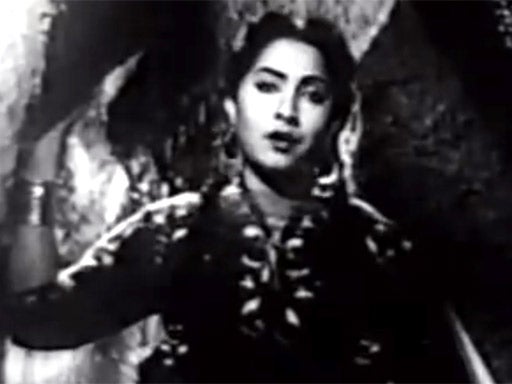
Zubaida Khanum, who died aged 78 in Lahore on 19 October, was one of the leading playback singers of the Lahore film industry during its 1950s glory days. She was a vocalist who dubbed for actresses on screen – the subcontinent's equivalent of Marni Nixon, who covered Deborah Kerr in The King and I and Natalie Wood and Rita Moreno in West Side Story.
Partition in 1947 wrought massive changes to the subcontinent's entertainment industry, at the forefront of which, then as now, was film. The Raj era's first talkie in 1931 had borrowed a trick from home-grown, regional theatre. Songs were interwoven into the narrative, in the case of the early talkies doubling as a kind of lingua franca for both illiterate and literate populations divided by regional languages and dialects. Music, the great leveller, set tills ringing.
The pre-Partition film industry had grown hugely in cultural importance. Regional centres sprang up, catering to specific linguistic groups, including Bengali, Punjabi, Tamil and Telugu. All used filmi sangeet – "film song" – to cross linguistic boundaries.
The Bombay-based Hindi film industry prospered during the Second World War. Its pictures were largely escapist fare but some also slipped self-rule messages past the wartime censors. At Partition, those in the Bombay industry had to choose on which side of Punjab's border to work.
The eldest of four children, Zubaida Khanum, born in 1935 in the Sikh holy city of Amritsar, belonged to one of the Punjabi Muslim families which relocated to Lahore in 1947. She developed a knack for singing. However, singing, especially public singing, was not generally approved of in respectable Muslim circles, partly because of associations with taiwaif ("courtesan") entertainment. Khanum's voice was noticed while she was still at school and she was directed to the Lahore station of Radio Pakistan.
In the course of her career, beginning with Billoo (1951), she recorded some 250 songs, primarily in Urdu or Punjabi, predominantly solo but also in duets; musical partners included the male vocalist Zareef Sahab and the female vocalist Munawar Sultana. She also made records for EMI Pakistan that went beyond the limits of filmi sangeet. She sang lyrics by Sufi poets such as Bulleh Shah – Punjabi's supreme Sufi philosopher-poet – and songs from Punjabi folk tradition, music that Hindi director A R Qureshi had incorporated in the 1940s.
Khanum was a singer who represented a counterblast to what many, irrespective of which side of the Pakistan-India border they call home, would call the "arrogance of Hindi".
In later life she deservedly became a prized and engaging guest on Pakistani television programmes. She rose above the nostalgia treadmill, arguably because, at the height of her popularity she married the cameraman Riyaz Bokhari, had four children, and quit playback singing in the 1960s to live a normal married life.
Ken Hunt
Join our commenting forum
Join thought-provoking conversations, follow other Independent readers and see their replies
Comments